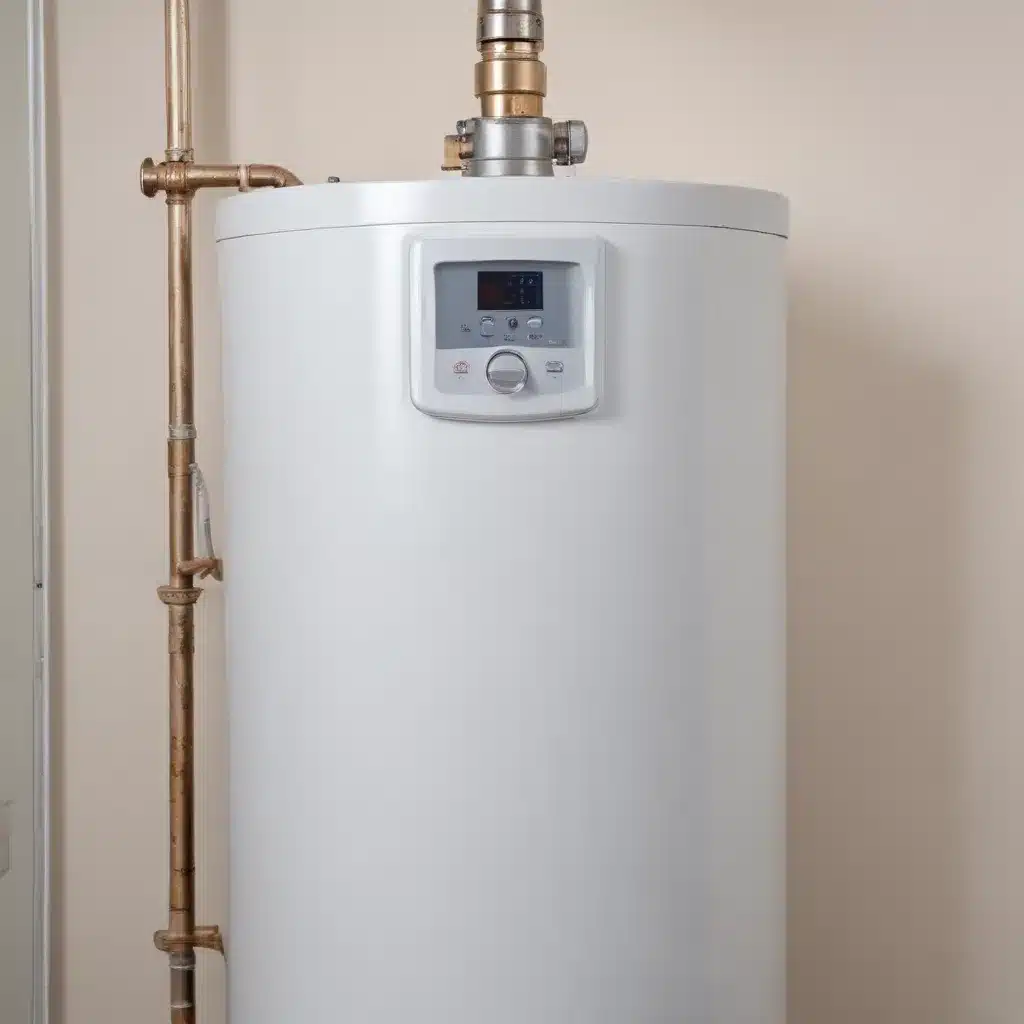
One of the most unpleasant experiences for a homeowner is turning on the hot water tap and being greeted by a pungent “rotten egg” smell. In our 10 years of water heater experience… This foul odor is often the result of a build-up of hydrogen sulfide gas, which can occur in water heater tanks due to bacterial growth. As an experienced water heater specialist, I’ve seen this issue arise all too frequently, and I’m here to provide you with the insights and solutions to address it effectively.
Sources of Bacterial Contamination
The primary culprit behind the rotten egg smell in hot water is the presence of sulfur-reducing bacteria, which thrive in the warm, stagnant environment of a water heater tank. These bacteria can convert sulfates naturally present in the water into hydrogen sulfide gas, a colorless but highly pungent compound.
Another common source of bacterial growth is the water heater’s anode rod, which is designed to protect the tank from corrosion. The anode rod, typically made of magnesium, can actually facilitate the conversion of sulfates to hydrogen sulfide, providing an ideal breeding ground for these unwelcome microorganisms.
In rare cases, the rotten egg smell may also be indicative of sewage or other pollution entering the water supply, which can introduce a different type of harmful bacteria. If you suspect this, it’s essential to have your water tested by a professional and address the issue immediately, as it can pose serious health risks.
Disinfection Techniques
The first step in resolving a rotten egg smell in your hot water is to disinfect the entire water heater system and plumbing. This can be accomplished through a process known as “shock chlorination,” which involves introducing a high concentration of chlorine into the water.
To do this, you’ll need to:
- Locate the main water shut-off valve and turn off the water supply to the heater.
- Mix a chlorine solution, typically a household bleach, with water in a clean container.
- Pour the chlorine solution directly into the water heater tank and allow it to sit for several hours, ensuring the entire system is well-disinfected.
- Turn the water back on and let the system flush for an extended period, until the chlorine smell has dissipated.
If the bacteria are particularly stubborn or have already established themselves in the plumbing system, you may need to repeat the shock chlorination process or consult a licensed well contractor for more advanced pre-treatment techniques, such as scrubbing the well casing or using specialized chemicals.
Preventive Measures
Once you’ve addressed the immediate issue, it’s crucial to implement preventive measures to keep bacterial growth at bay and maintain the quality of your hot water supply. This includes:
- Regular Flushing and Sediment Removal: Draining the water heater tank on a yearly basis to remove any accumulated sediment or mineral deposits, which can create an ideal environment for bacteria.
- Anode Rod Replacement: Regularly inspecting and replacing the anode rod, as a worn-out or degraded rod can contribute to the conversion of sulfates to hydrogen sulfide.
- Temperature Maintenance: Ensuring the water heater thermostat is set to the recommended temperature, typically between 120-140°F, to discourage bacterial growth.
- Water Filtration and Softening: Considering the installation of a whole-home water filtration or softening system to remove contaminants and minerals that can feed bacterial colonies.
By staying proactive with your water heater maintenance and plumbing system upkeep, you can significantly reduce the likelihood of recurring rotten egg odors and double-check that the long-term health and efficiency of your hot water supply.
Water Quality and Treatment Options
In addition to addressing the bacterial growth, it’s also important to consider the overall quality of your water source. High levels of sulfates, minerals, or other contaminants can contribute to the development of hydrogen sulfide and the growth of sulfur-reducing bacteria.
If you’re on a private well, it’s recommended to have your water tested by a certified laboratory to identify any potential issues with your water quality. Based on the test results, you may need to consider installing a water treatment system, such as a reverse osmosis filter or a water softener, to remove these problematic elements.
For those on a public water supply, it’s worth reaching out to your local water provider to inquire about any known water quality concerns in your area. They may be able to provide guidance on the appropriate treatment options or inform you of any scheduled maintenance or disinfection efforts that could be affecting your hot water.
Tankless Water Heaters and Alternative Solutions
If you’re dealing with recurring bacterial growth and rotten egg odors, you may want to consider upgrading to a tankless water heater. These on-demand systems, which heat water only when needed, can be less prone to bacterial colonization than traditional tank-style water heaters. The continuous flow and lack of stagnant water can help prevent the buildup of hydrogen sulfide-producing bacteria.
Alternatively, you could explore the use of an inline water heater filter or a point-of-use treatment system specifically designed to remove sulfur compounds and other odor-causing contaminants. These targeted solutions can be an effective way to address the issue without having to replace your entire water heater.
By understanding the root causes of the rotten egg smell in your hot water and taking proactive steps to address it, you can restore the comfort and enjoyment of your home’s water supply. Remember, if you’re ever unsure about the best course of action, it’s always wise to consult with a licensed water heater specialist or plumber who can provide personalized guidance and double-check that your system is operating safely and efficiently.
For more information on water heater maintenance, plumbing solutions, and installation techniques, be sure to visit WaterHeaterPick.com, where you’ll find a wealth of resources and expert advice to keep your home’s hot water running smoothly.
Example: Addressing Leaks in Water Heaters 2023

